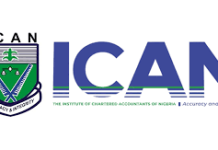World Bank has projected that Nigeria’s decision to sustain her commitment to paying fuel subsidy may cost the country N4 trillion as the year (2022) proceeds.
Shubham Chaudhuri, the Country Director of World Bank, stated that Nigeria’s decision to postpone the full deregulation of the downstream sector of the petroleum industry by 18 months may cost the country such an amount of money.
“With economics, really, you are not meant to make a political decision. What you are meant to do is to lay out what are the cons and consequences of different decisions.
“So that is what we are doing, we are just being very clear that this would come with a fiscal cost and the fiscal cost is the number, perhaps N4 trillion this year,” he stated.
Expressing an opinion that the increment in the prices of crude on a global scale is not helpful to Nigeria that much, Chaudhuri blamed the situation on fuel subsidy, as he maintained that it is harmful to the economy.
“The reason is that the cost of the PMS subsidy is going up. So at $85 per barrel, the NNPC was projecting that the cost of the PMS subsidy will be around N180bn to N200bn per month. In January when crude oil prices had already gone up to $90, $93, it (subsidy) still went up to N250bn per month.
“Now you just mentioned it is $100 per barrel, our guess right now is that we are looking at N4tn or even more in the year 2022 as the cost of PMS subsidy.”
While making a calculation, he said, “You take 60 million litres a day, which the NNPC said is being evacuated from its depots, you take what is happening to the cost of imported world gas, price of gasoline, which is going up because the crude oil price is going up.
“Right now, the differential I believe is about N200 per litre. So 60 million times N200 every day is N12bn per day. Multiply that by 30, that is N360bn per month. Multiply that by 12, it will be somewhere about N4tn per year.
“And the N200 billion, I think was when the oil price was around $93. So with oil prices at $100, the gap between N165 per litre and the (actual) cost of PMS is going to be more than N200 per litre.
“And that is the main reason we feel it is going to be a bit negative for Nigeria’s fiscal situation because oil production is not going up or may even continue to stall,” the World Bank chief added.













